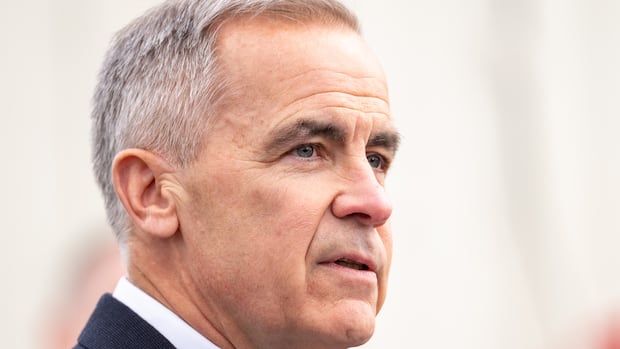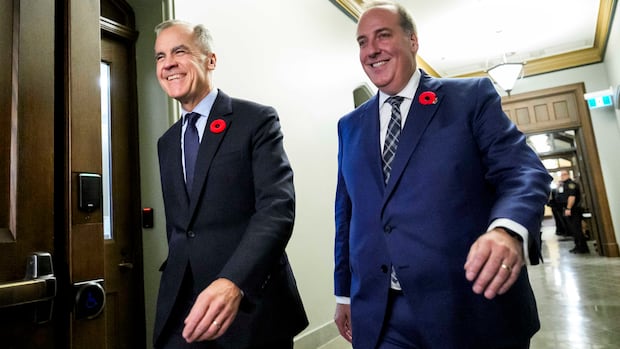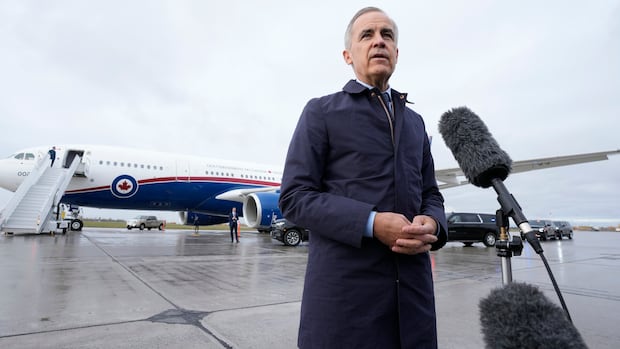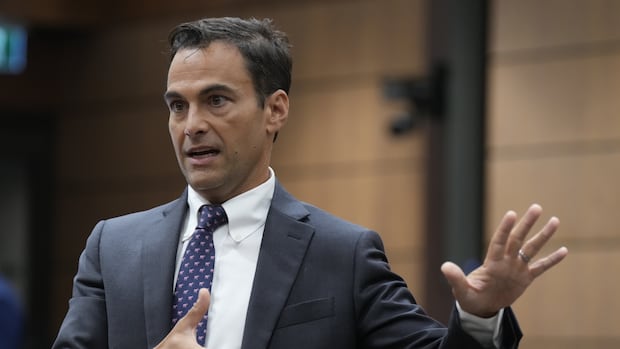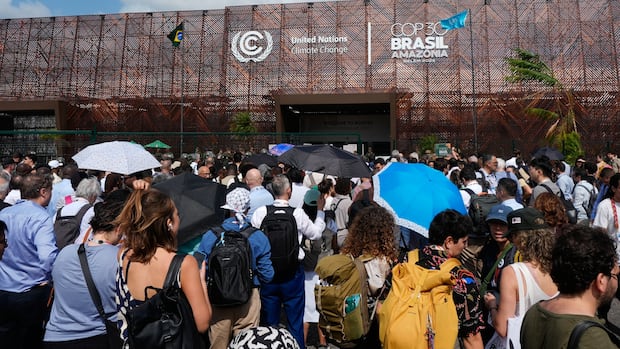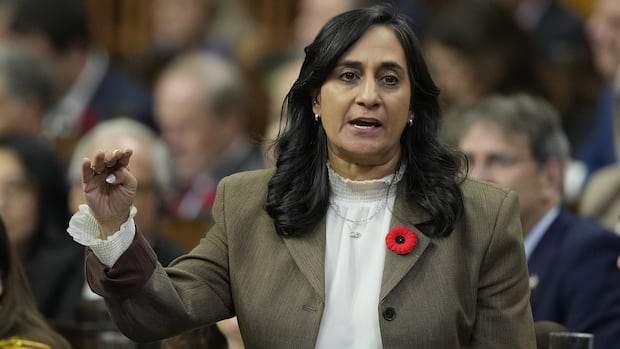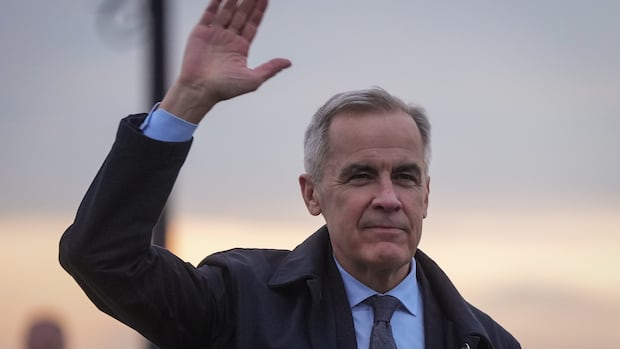Listen to this article
Estimated 5 minutes
The audio version of this article is generated by text-to-speech, a technology based on artificial intelligence.
At the same time that Prime Minister Mark Carney was announcing a new tranche of major projects his government wants to fast-track, including a new gas export terminal, Canada’s representatives were trying to shore up the country’s climate reputation amongst the international community.
They face a very different reception this year at the COP30 UN climate summit in Belém, Brazil, trying to convince the world that despite recent rollbacks of some key climate policies, Canada is still committed to bringing emissions down and meeting its long-term targets.
“We were seeing emissions decline, but that's unfortunately been rolled back because we are seeing weakening of policies,” said Anna Kanduth, senior policy analyst at the research organization Climate Analytics, which recently downgraded Canada’s climate plan to “highly insufficient.”
The government has rolled back or suspended certain policies like the consumer carbon price and the electric vehicle sales mandate, while other policies like an oil and gas emissions cap are up in the air.
“We are seeing the government start to be more open to expanding fossil fuel production and that obviously is worsening the climate crisis.”
Kanduth’s organization rates every country’s climate plan on the basis of whether it is doing enough to limit global warming to 1.5 C, the goal of the 2015 Paris Agreement. Canada is not alone amongst Western nations and major oil and gas producers to have a poor rating, but Kanduth said it is uncommon for a country to slide backwards.
In September, the Canadian Climate Institute said for the first time that Canada will not meet its 2030 emissions target — a 40-45 per cent emissions reduction by 2030 — and that progress on reducing emissions has stalled. But Environment Minister Julie Dabrusin says Canada is sticking to its targets despite looming challenges.
 Environment Minister Julie Dabrusin has said Canada stands behind its climate targets despite recent policy changes. (Adrian Wyld/The Canadian Press)
Environment Minister Julie Dabrusin has said Canada stands behind its climate targets despite recent policy changes. (Adrian Wyld/The Canadian Press)"Our country's targets ... we always knew that they were going to be ambitious. That's why they were set, because if you don't set an ambitious target, then you aren't going to meet ambition," Dabrusin said in an interview with CBC News in Belém.
Dabrusin was appointed environment minister by Carney after the 2025 general election, succeeding Steven Guilbeault, who was Trudeau’s environment minister from 2021 to 2025 and oversaw the development of a large part of Canada’s climate plan.
Guilbeault is now the minister of Canadian identity and culture, and in this role retains some responsibility for the government’s nature strategy, including being the minister responsible for Parks Canada.
“I think obviously that the targets are important. What we have done over the last 10 years is also very important,” Guilbeault told CBC News in Belém, where he is also attending COP30.
“Billions of dollars of investment in electrification, in clean electricity, in clean technology, billions of dollars investment to start adapting to the impacts of climate change … this is not nothing, but I understand that there's more that needs to be done.”
 Steven Guilbeault, the former environment minister, says that Canada's actions over the past decade show its commitment to cutting emissions. (Justin Tang/The Canadian Press)
Steven Guilbeault, the former environment minister, says that Canada's actions over the past decade show its commitment to cutting emissions. (Justin Tang/The Canadian Press)"With what's happening south of the border, it's making it more challenging for everyone, including Canada. We used to have cooperation with the U.S. Environmental Protection Agency on electricity, on vehicles, on methane pollution from the oil and gas sector," Guilbeault said.
"That collaboration is gone. It's not happening anymore."
This Saturday, Just Asking wants to know: What questions do YOU have about Canada’s role in the global fight against climate change? Fill out this form and send us your questionsU.S. President Donald Trump is pulling the U.S. out of the Paris Agreement and has not sent even lower-level representatives to COP30. But pressure from the U.S. has not dampened the shift to clean energy in other parts of the world.
"Europe, where I am from in Germany, has also had tremendous challenges with the Trump administration," said Jennifer Morgan, a German American climate diplomat and a former special representative for international climate policy for the German government.
"Europe just adopted a 90 per cent binding reduction target by 2040 and is moving forward on renewables, also because of the competition that's coming from China."
WATCH | Canada announces new climate finance:At the COP30 climate conference in Brazil, Environment and Climate Change Minister Julie Dabrusin announced that Canada would pledge $392 million for global climate action projects as part of the federal government's 2021 climate fund.Catherine Abreu, a longtime Canadian environmental campaigner and member of Canada’s Net-Zero Advisory Body, a legally-mandated group that provides advice to the government on climate policies, said that the country has had a low profile at the talks in Brazil this year.
“There are often questions about whether Canada is actually going to follow through on its climate commitments,” she said.
Abreu said the disappointment is compounded by the fact that Carney has a long history of climate-related work. As a central banker, Carney spearheaded sustainability initiatives in the financial sector, which Abreu said led climate advocates like herself to be hopeful when he became prime minister.
“Instead, we're seeing him double down on an approach that we've seen Canadian government after Canadian government take, which is just increasing subsidies to the oil and gas sector and thinking that building pipelines is somehow going to save Canadian prosperity,” she said.
Canada has so far made a $392 climate finance announcement at COP30, and its other priorities at the conference include supporting nature conservation and efforts to cut methane emissions. The conference runs until Nov. 21.


